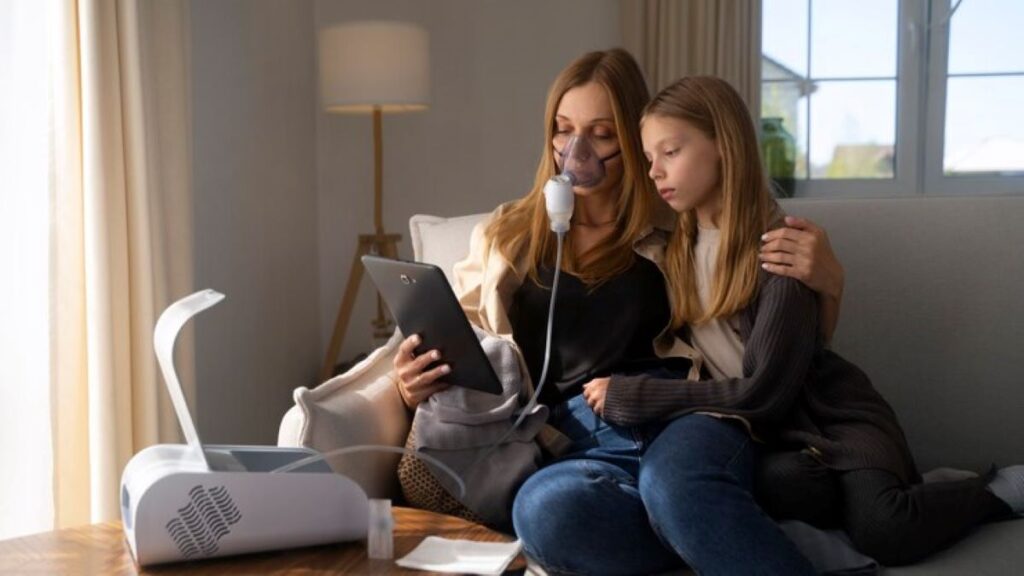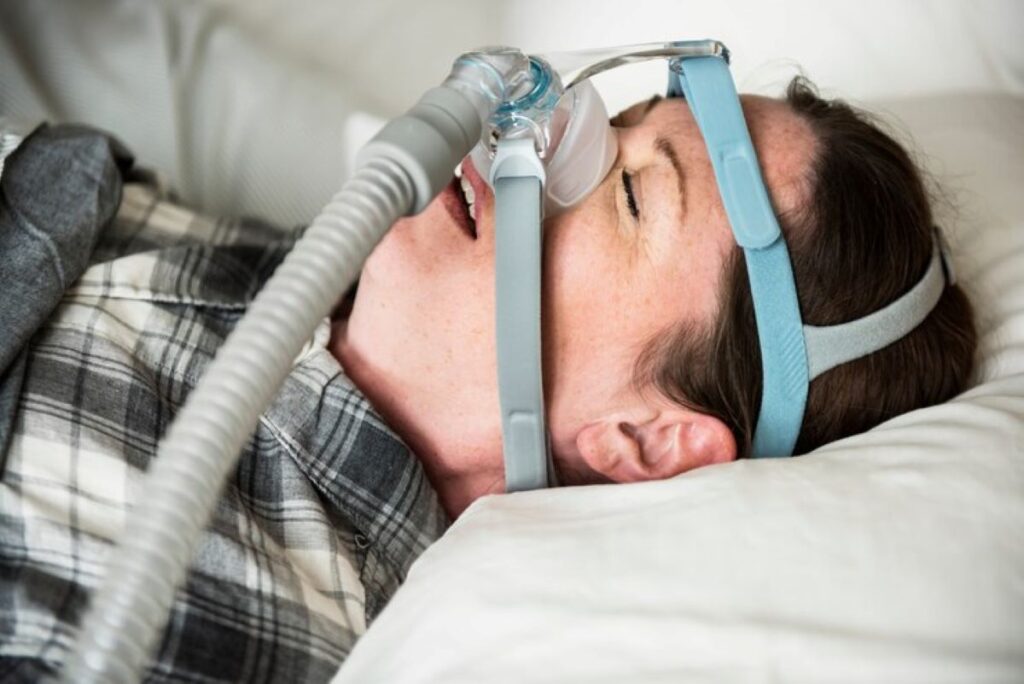For individuals suffering from sleep apnoea, the choice of a Continuous Positive Airway Pressure (CPAP) mask is pivotal to the success of their treatment. An inadequately fitted mask can undermine the entire process, rendering even the most advanced CPAP machine ineffective. This article will delve into why it’s crucial to select a CPAP mask that fits properly, covering the essential roles, significance, common issues, tips for finding the right fit, and maintenance recommendations.
Understanding the role of a CPAP mask
The CPAP mask serves as a vital interface between the user and the CPAP machine. Its primary purpose is to provide a steady stream of air to maintain open airways while the user sleeps. This stream of air prevents the airway from collapsing, which is a common occurrence in individuals with sleep apnoea. Understanding how the mask functions is the first step in recognising its importance.
The function of a CPAP mask in sleep apnoea treatment
The CPAP mask plays a critical role in delivering the therapeutic air prescribed by a sleep therapist or doctor. This treatment can significantly reduce apnoeic episodes, thereby improving quality of sleep, reducing daytime fatigue, and enhancing overall health.
When the mask is correctly fitted, it ensures a tight seal that prevents air leaks. This leak prevention is essential for maintaining the proper pressure levels necessary for effective treatment. Inadequate pressure can negate all the benefits of the CPAP therapy, leading to suboptimal health outcomes. Moreover, the psychological aspect of using a CPAP mask cannot be overlooked; many users report feeling more secure and at ease when they know their treatment is effectively managing their condition, which can lead to a more restful night’s sleep.
How a CPAP mask works
Most CPAP masks operate by connecting directly to the CPAP machine, which generates air pressure. The mask then channels this air into the user’s airways through a series of vents and straps. There are several types of masks available, including nasal masks, full-face masks, and nasal pillows, each designed to suit different user preferences and comfort levels.
A well-designed CPAP mask will typically feature adjustable straps, cushioning for comfort, and a lightweight frame to minimise discomfort during sleep. However, regardless of the mask design, the crux of effective therapy lies in the proper fit. Users often find that experimenting with different styles can lead to a more personalised experience, as individual facial structures and sleeping positions can greatly influence the effectiveness of the mask. Additionally, regular maintenance and cleaning of the mask are crucial to ensure hygiene and prolong its lifespan, as accumulated moisture and debris can lead to skin irritations or respiratory issues.
The significance of a well-fitted CPAP mask
A well-fitted CPAP mask is not just a matter of comfort; it directly influences the treatment’s success rate. Without proper fit, patients may experience a range of issues that could lead to poor compliance with their therapy regimen.
The impact of mask fit on treatment effectiveness
When a mask is too loose, it leads to leaks. These leaks can disrupt the steady airflow needed for effective treatment, making it less effective. Conversely, if the mask is too tight, it can cause discomfort, skin irritation, or even pressure sores, which can discourage use altogether.
Research has shown that patients who maintain their CPAP compliance often do so because they have a well-fitted mask that enables them to sleep comfortably without interruptions.
The connection between mask fit and comfort
Comfort is paramount when it comes to selecting a CPAP mask. An ill-fitted mask not only affects treatment effectiveness but can also lead to excessive discomfort, which is a common reason for patients discontinuing their therapy. If the mask does not fit well, it may cause anxiety about using it, which can negatively impact sleep quality.
Therefore, finding a mask that fits securely and comfortably becomes key to the overall success of CPAP therapy. A mask that hugs the face without feeling restrictive allows for a peaceful night’s sleep, free from the distractions of discomfort or the anxiety of airflow disruption.
Moreover, the psychological aspect of wearing a CPAP mask should not be overlooked. Many patients report feeling self-conscious about their appearance while wearing a mask, which can lead to reluctance in using it, especially in shared living situations. This highlights the importance of selecting a mask that not only fits well but also aligns with the user’s lifestyle and preferences. Manufacturers have begun to offer a variety of styles and designs, including more discreet options, to help alleviate these concerns and encourage consistent use.
Furthermore, regular follow-ups with healthcare providers can help ensure that the mask continues to fit well over time. Factors such as weight fluctuations or changes in facial structure can affect how a mask fits, necessitating adjustments or even a new mask. Engaging in open communication with healthcare professionals can empower patients to take an active role in their therapy, ultimately leading to better adherence and improved health outcomes.
Common issues with ill-fitting CPAP masks
Even though a great selection of CPAP masks is available, patients frequently encounter issues stemming from improper fitting. Recognising these problems is essential for better management of sleep apnoea treatment.
Problems caused by masks that are too tight
A mask that is excessively tight can lead to several complications. Skin irritation and redness are common signs of too much pressure, and for many patients, this discomfort leads to avoidance of mask usage altogether. Tight masks can also create a claustrophobic sensation, making it difficult to relax and fall asleep.
Besides discomfort, tight masks might even restrict airflow, inadvertently worsening the situation they are designed to remedy. It’s quite a paradox when a device meant to assist in breathing actually complicates the act. Furthermore, the psychological impact of wearing an uncomfortable mask should not be underestimated; patients may experience anxiety or stress associated with their nightly routine, which can further disrupt their ability to achieve restful sleep.
Complications from masks that are too loose
On the other hand, masks that are too loose can create significant air leaks, which can trigger the CPAP machine to raise pressure levels in an attempt to compensate. This reaction can cause fluctuations in airflow, making it challenging for patients to maintain a steady sleep pattern.
Moreover, air leaks can lead to dry mouth or nasal passages, further complicating the user’s experience. Finding a balance is crucial; too loose and the therapy fails, too tight and comfort diminishes. Additionally, the social implications of using a CPAP mask should be considered. Patients may feel self-conscious about their appearance while wearing a mask, particularly if it is ill-fitting, which can deter them from using it consistently. This reluctance can ultimately hinder their treatment progress, making it imperative to address fitting issues promptly and effectively.

Tips for finding the right CPAP mask fit
Selecting the right CPAP mask involves understanding individual needs and preferences. Here are some practical tips to consider when looking for the ideal fit.
Understanding different mask styles and sizes
The first step in finding the right fit is to explore the various styles available. The three prominent styles are nasal masks, full-face masks, and nasal pillows, each catering to different user needs. Nasal masks cover just the nose and are best suited for users who breathe through their noses, while full-face masks are designed for mouth breathers.
Additionally, masks come in various sizes, so it’s advisable to try a few different sizes within a chosen style to find the optimal fit. Many suppliers offer fitting services or consultations that can guide users through the process.
The role of professional fitting services
Utilising professional fitting services can prove beneficial in ensuring that the correct mask is chosen. These services often involve trained professionals who understand the intricacies of mask fitting and can offer personalised recommendations based on the user’s facial structure and breathing habits.
The fitting process may include trying on several masks, adjusting straps, and ensuring that the seal is adequate. This professional input can make a significant difference in the overall CPAP therapy experience.
Maintaining your CPAP mask for optimal fit
To ensure the effectiveness of your CPAP therapy, it’s essential to maintain your mask regularly. Regular care not only extends the life of the mask but also keeps it hygienic for everyday use.
Regular cleaning and care for your mask
Cleaning your CPAP mask every day is vital to prevent the build-up of bacteria and other pathogens that could compromise health. Use a mild soap solution to clean the mask, ensuring that all residues are washed off to avoid skin irritation during use.
Additionally, inspecting the mask regularly for wear and tear helps maintain a proper fit. If any parts of the mask show signs of damage or the material begins to lose its flexibility, it may be time to consider replacement.
When to consider replacing your CPAP mask
Over time, even the best masks wear out. Straps may stretch, materials can degrade, and the overall seal may diminish. It’s generally recommended to replace your CPAP mask every three to six months, depending on usage.
Pay attention to the response of your therapy; if you notice an increase in leaks, discomfort, or a decreasing sense of effectiveness, these could be signs it’s time for a new mask. Keeping up with replacements may seem tedious but is necessary for ongoing treatment success.
In conclusion, the importance of a properly fitting CPAP mask cannot be overstated. Engaging in a thoughtful selection process, understanding the role of the mask, addressing common issues, and maintaining hygiene and fit are paramount for successful CPAP therapy. With the right approach, patients can significantly enhance their quality of life and sleep well at night.
Related : The Benefits of Shopping to Buy CPAP Masks Online for Convenience

